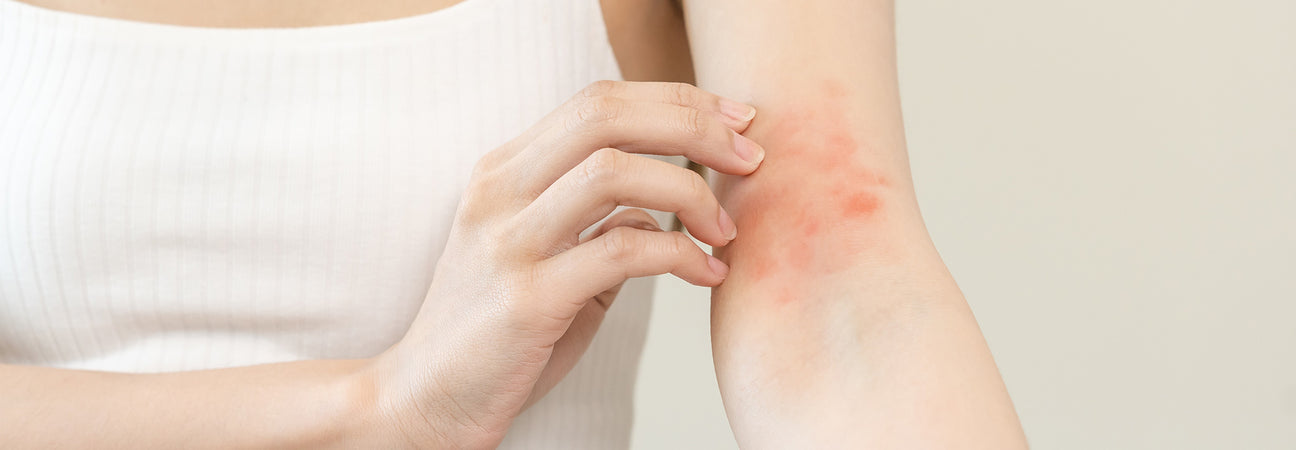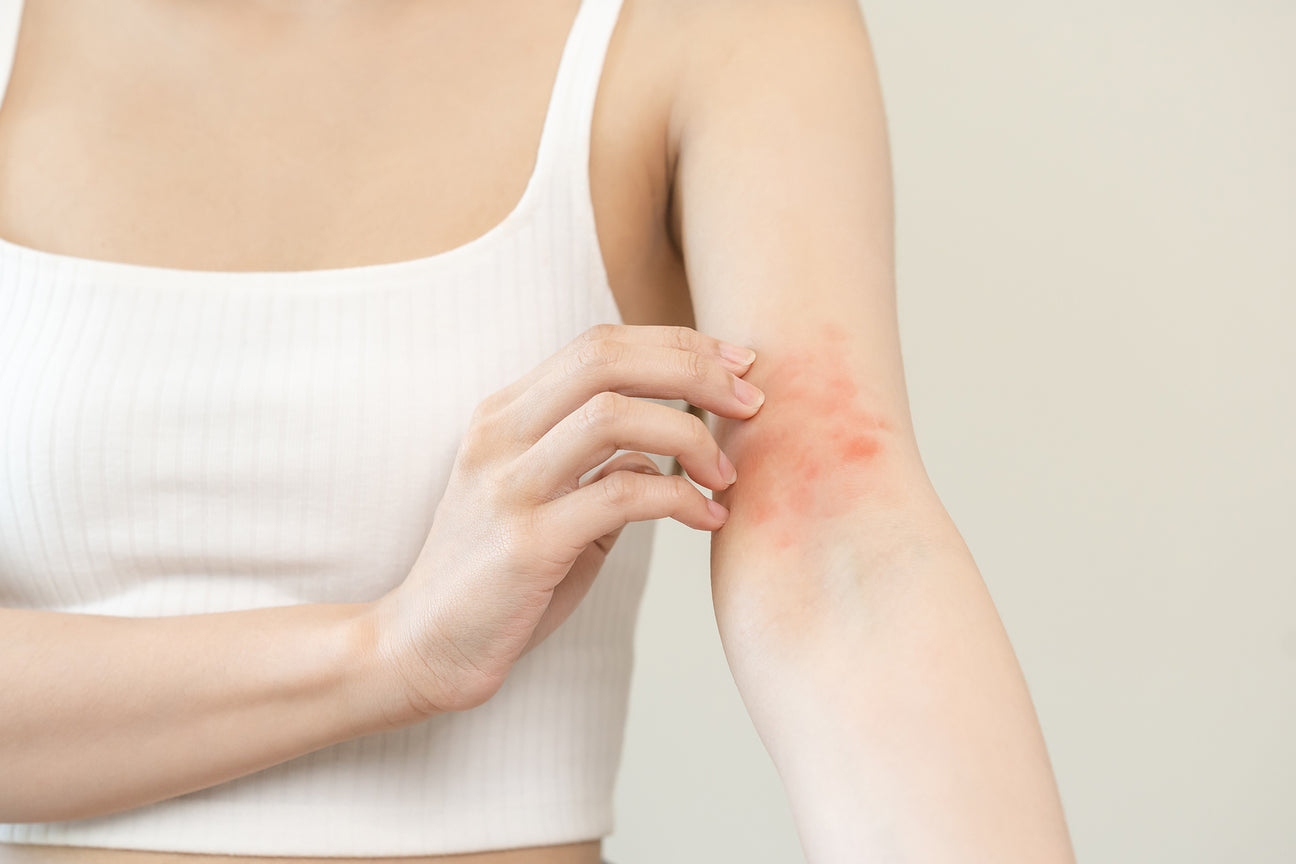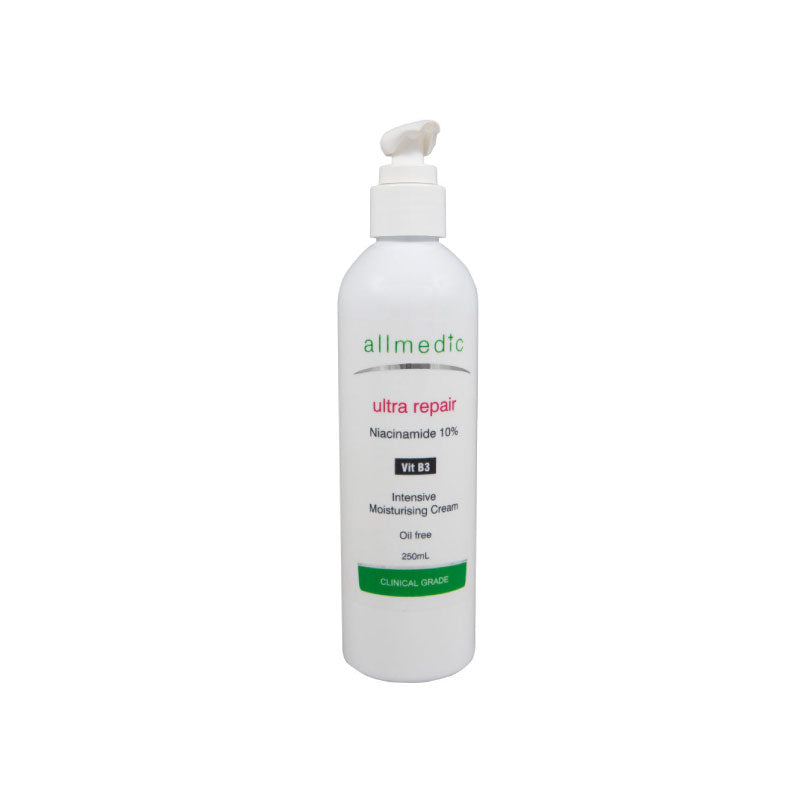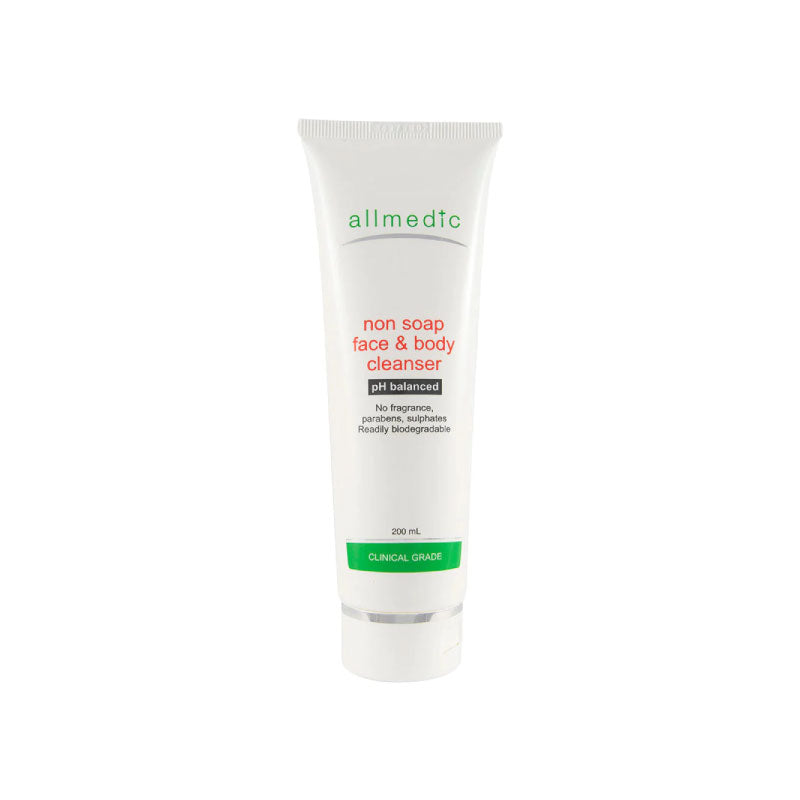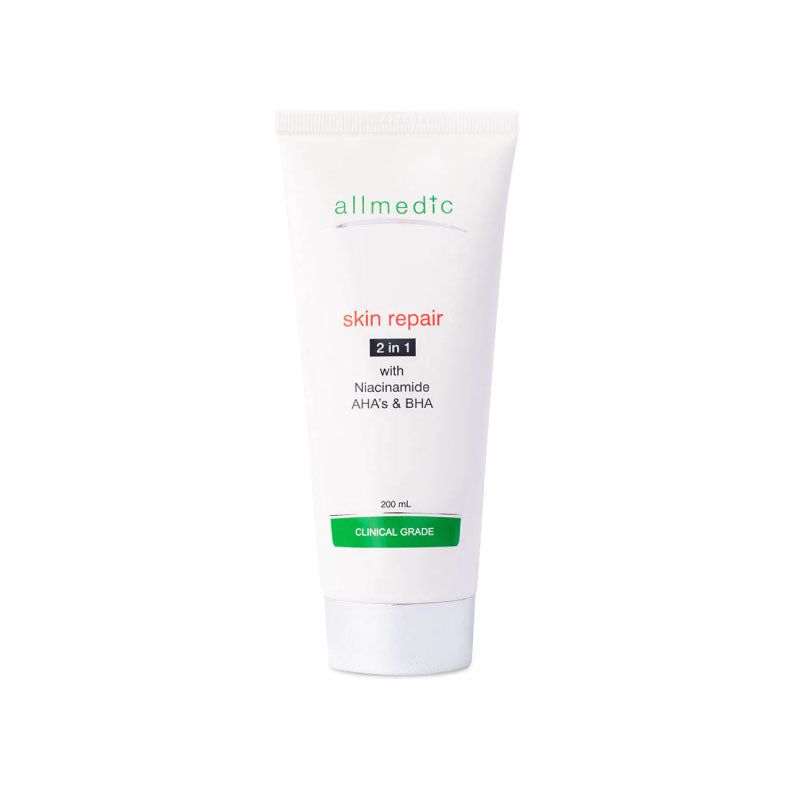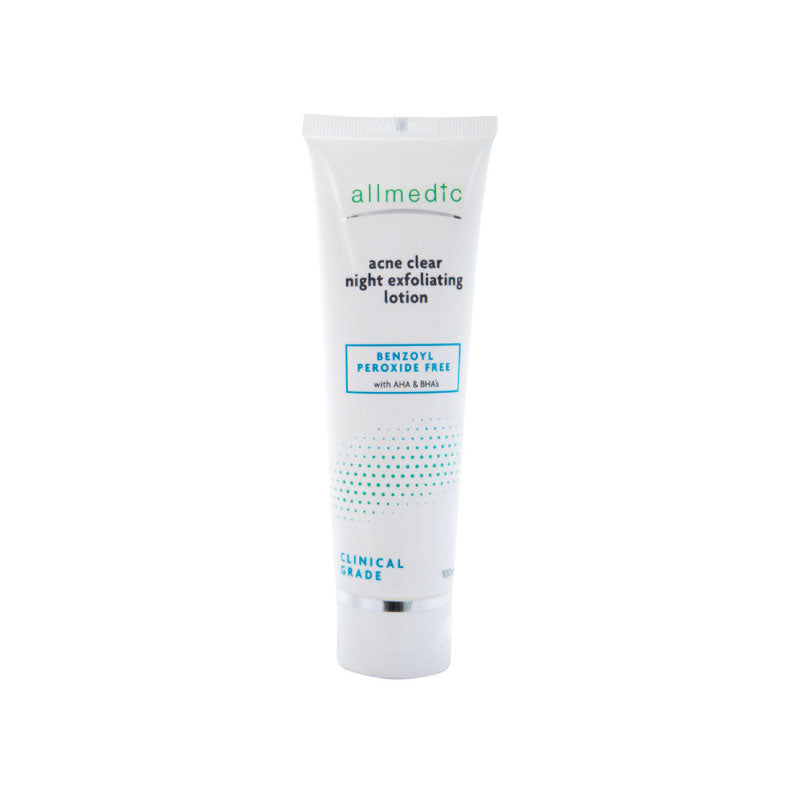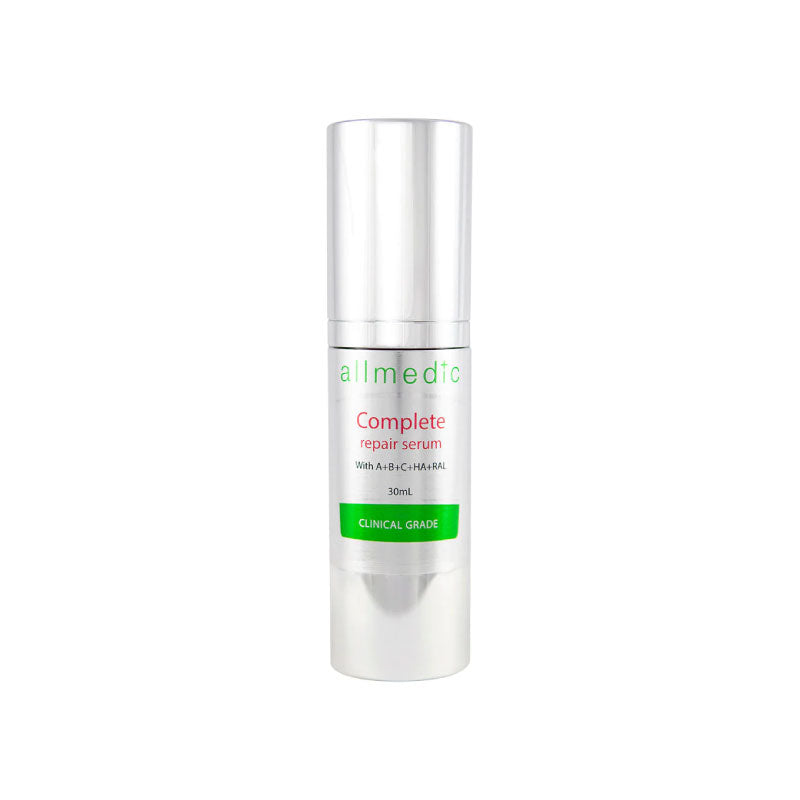Why Choose Us


Founded by Medical Doctors
Specialised and practiced in the fields of skin cancer, medical cosmetology, molecular immunology, and skin allergies.


Helping Healthcare Professionals
Providing doctors with services and tools to promote better skin health.


Helping Australians
Providing an alternative to traditional department store or pharmacy cosmetics.
What our customers say
Eczema Treatment
What is Eczema?
Eczema is a term that encompasses various types of skin inflammation, with atopic dermatitis being the most common form. It often begins in childhood and can persist into adulthood, though the severity and frequency of flare-ups can vary widely among individuals.Common Eczema Symptoms
The symptoms of eczema can range from mild to severe and include:- Persistent itching
- Red or brownish-grey patches, especially on the hands, feet, ankles, wrists, neck, upper chest, eyelids, inside the bend of the elbows and knees and in infants, the face and scalp
- Small, raised bumps, which may leak fluid and crust over when scratched
- Thickened, cracked, dry, or scaly skin Sensitive skin, swollen from scratching

Causes and Triggers
The exact cause of eczema is unknown, but it is believed to be linked to a combination of genetic and environmental factors. Common triggers include:- Skin irritants like soaps, detergents and certain fabrics
- Allergens such as pet dander, pollen and dust mites
- Stress
- Hormonal changes
- Weather conditions, particularly dry or cold weather
- Infections and skin injuries
Everyday Treatment Approaches
Daily Moisturising
Maintaining skin hydration is vital for eczema management. Regular use of moisturisers helps to restore the skin barrier, reduce dryness and prevent flare-ups.Avoiding Triggers
Identifying and avoiding known triggers can significantly reduce the frequency and severity of eczema flares. This includes using hypoallergenic products, wearing soft, breathable fabrics and managing stress levels.Medical Eczema Treatments
Topical Steroids
Topical corticosteroids are commonly prescribed to reduce skin inflammation and alleviate itching. They are effective in managing moderate or severe eczema but should be used under medical supervision to avoid potential side effects.Oral Medications
For severe atopic dermatitis, oral medications that suppress the immune system may be necessary. These medications can help control symptoms but may have significant side effects and require careful monitoring.Phototherapy
Light therapy, or phototherapy, involves exposing the skin to controlled amounts of natural or artificial light. This treatment can reduce inflammation and help manage moderate or severe eczema.

Skincare Routine for Eczema Patients
Daily Cleansing Routine
Using gentle cleansers is crucial for those with eczema. Harsh soaps can strip the skin of its natural oils, exacerbating dryness and irritation. A non-soap cleanser is often recommended to maintain the skin’s natural barrier. One of our highly recommended products is the Allmedic Non-Soap Cleanser, which is designed to cleanse sensitive skin without causing irritation or dryness. Its gentle formulation makes it ideal for daily use by eczema patients.Moisturising and Repair
Hydration plays a key role in managing eczema. Regular use of moisturisers helps to keep the skin soft and supple, reducing the risk of cracks and infections. For effective moisturising, the Allmedic Ultra Repair cream is an excellent choice. It provides intensive hydration and helps repair the skin barrier, making it a valuable addition to any eczema skincare routine.Managing Eczema Flares
Identifying Flare Triggers
Understanding what triggers eczema flares is essential for effective management. Common triggers include stress, skin irritants, allergens and infections.Immediate Care Steps
During an eczema flare, it’s important to manage symptoms promptly. This may involve using topical therapies, maintaining skin hydration and avoiding known triggers.Long-term Management Strategies
Long-term strategies for managing eczema include regular use of emollients, avoiding irritants and following a prescribed treatment plan from a healthcare professional.Conclusion
Proper management of eczema is essential to minimise symptoms and improve the quality of life for those affected. Seeking professional help and adhering to a tailored treatment plan can make a significant difference in managing this chronic condition. Exploring effective products such as the Allmedic Non-Soap Cleanser and Ultra Repair cream can provide additional support in maintaining healthy skin.Frequently Asked Questions
How can I manage dry skin associated with eczema?
Managing dry skin is crucial for eczema patients. Regular use of emollients and moisturisers can help keep the skin hydrated and prevent flare-ups.
Are people with eczema more prone to skin infections?
Yes, due to the compromised skin barrier in atopic eczema, individuals are more susceptible to skin infections. It’s important to maintain good skin hygiene and use prescribed topical medications to manage infections.
Can stress make eczema worse?
Yes, stress can trigger or exacerbate eczema flares by impacting the immune system. Managing stress through relaxation techniques, exercise and adequate sleep is an important aspect of eczema treatment. Reducing stress can help minimise flare-ups and improve overall skin health.
Is there a link between eczema and food allergies?
Yes, food allergies can trigger or worsen eczema symptoms. Common allergens include dairy, nuts and eggs. It’s essential to identify and avoid these allergens through an elimination diet or allergy testing to prevent making eczema worse.
Can eczema increase the risk of skin cancer?
While eczema itself does not increase the risk of skin cancer, long-term use of certain topical medications may have potential risks. Always follow your healthcare provider’s recommendations.
Does hay fever affect eczema?
Yes, hay fever can exacerbate eczema symptoms due to the body’s heightened immune response to allergens. Managing hay fever through antihistamines and avoiding known allergens can help control eczema flare-ups.
